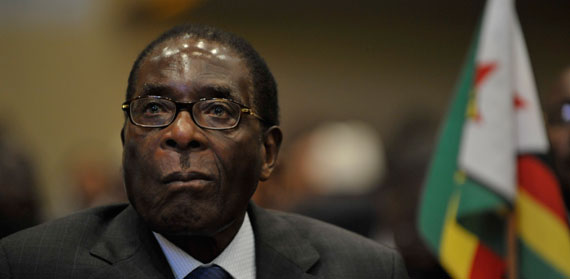Guest post by Georgina McAllister, Centre for Agroecology, Water & Resilience
For the people in Zimbabwe who over previous years have become more confident to speak their minds, or share their views via social media, the hopes of political change have been dashed by what essentially could be a transition of power between ZANU-PF protagonists – or ‘Big Dogs’ as they are known colloquially.
People learned about the dramatic events on Tuesday afternoon through their social media feeds, despite last month’s creation of a new ministry for Cyber Security, Threat Detection and Mitigation to quash negative posts. Watching tanks and personnel carriers rolling into Harare, most Zimbabweans were just hoping for any change, by whatever means. And while social media may have failed to mobilise the hoped-for people’s change, it did at least provide information of the changes taking place.
That’s in comparison to the state-run media which refused point blank to acknowledge what was happening, just as it did during July 2016 protests and the stay-aways which left cities deserted. At the time these were instead explained by state broadcaster ZBC as being due to heavy rains, despite the clear winter skies being apparent for all to see.
However, with a majority rural population, largely conservative and wedded to the strong narrative of cultural nationalism promoted by ZANU-PF, as well as the continued demand for (albeit far more equitable and transparent) land reform, the ruling party continues to enjoy considerable support in the rural areas. Yet this is far from a simple demographic calculation.
Being a card-carrying ZANU-PF member may assist in accessing land or farming inputs, or getting through the many road blocks that are now the primary source of revenue for the police, but it is certainly no indication of rural support when it comes to elections, despite the apparent lack of any viable opposition. Nonetheless, the atmosphere remains cautiously, and in some areas very quietly, optimistic.
Over recent years it is striking how people have become emboldened, and are now more willing to speak openly about their frustrations at the corruption within the political elite and even the ruling party itself.
This signifies a dramatic departure from the not-so-distant past when any dissenting voices, of which few were audible, would be hushed even in back offices or the privacy of one’s own home.
Today even ruling party officials when questioned about political improprieties, simply raise a knowing eyebrow.
Yet people are constantly reminded of the seriousness of ongoing political sensitivities by the regular appearance of officials or other seemingly casual observers, a regular feature of public meetings across Zimbabwe – signalling government’s clear intent to close down any remaining civic space.
It seems this week that the proposition of a hand-over of power to the divisive First Lady Grace Mugabe, deeply unpopular across Zimbabwe even amongst ruling party devotees, was a step too far.
Had it been put to the Zimbabwean people, which of course it was not, it would surely have resulted in a resounding defeat for the ruling party, despite its best efforts to control the election results by all means at its disposal.
The manoeuvring into position of Grace, indicated by President Robert Mugabe’s sacking of former Vice President Emerson Mnangagwa on Monday, was not just a red line for ordinary Zimbabweans, it was a red line for the old guard within party itself. And crossing it demonstrated the ultimate hubris, and no-doubt the first family’s undoing.
If, as widely expected, the country’s leadership is handed to Mnangagwa on return from his short exile, this represents more of a transition of power within the old guard of ZANU-PF to prevent a power grab by those without the requisite Liberation lineage, notably the Generation 40 and the opposition MDC.
After all, Mnangagwa has been the president-in-waiting for far too long to have simply evaporated after his removal last week.
As a strong-man, he offers transition rather than transformation, and as such will no-doubt be supported by global leaders and international investors as the ‘continuity candidate’ to realise his long-held ambition to lead Zimbabwe.
Perhaps most significantly, this transition effectively serves to close down any serious questioning of Zimbabwe’s violent past, such as the Gukurahundi massacres, the widespread election violence in 2008 and 2010, and the ongoing interment and torture of any dissenting voices.
All of this has been presided over by the very ZANU-PF old guard now proposing to lead the nation in to a bright new future.
Mnangagwa was considered by some to be one of the principle architects of Gukurahundi massacres, which left over 20,000 people dead, and many more thousands tortured, some over many years, in internment camps.
Of specific interest to civil society groups seeking truth and justice for Gukurahundi is that, on being ejected from office last Monday, Mnangagwa is currently without his diplomatic immunity and is thus exposed to prosecution for crimes against humanity. But if returned to office, he will have that immunity again.
If he gains power it’s expected he will use his well-honed skills to purge Zanu-PF’s of any remaining internal opposition. The military has already begun this process.
As Mugabe digs in his heels, under the cover of the constitution, the social media rumour mill is alight. People are largely supportive of the military’s primary aim of removing Mugabe, yet are less sanguine about accepting its preferred candidate, Mnangagwa.
At their December party conference, ZANU-PF must choose its next leader very carefully indeed. Mnangagwa, respected amongst the party faithful, is deeply unpopular across Zimbabwe (having lost his own seat twice).
Ahead of the 2018 elections, and with so many intervening pathways to be explored, the road is far from clear. The rumoured mass demonstration tomorrow in Harare promises to be an important turning point for ordinary Zimbabweans to finally be heard above the barking of the big dogs.
Phd Student Georgina McAllister has spent 10 years working with civil society organisations in Zimbabwe and the past nine months in the country carrying out fieldwork looking into the role agroecology can play in helping to build peace in rural areas.
This blog is based on her own experiences of working with people in the country.




Comments are disabled